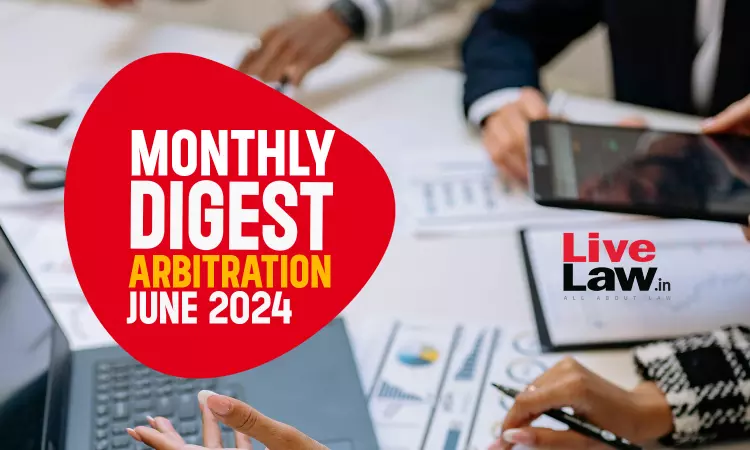Arbitration Cases Monthly Digest: June 2024
Rajesh Kumar
4 July 2024 3:30 PM IST
Supreme Court High Court Not Having Original Civil Jurisdiction Cannot Extend Time To Pass Arbitral Award As Per S.29A(4) Arbitration Act : Supreme Court Case Title: CHIEF ENGINEER (NH) PWD (ROADS) VERSUS M/S BSC & C and C JV Citation : 2024 LiveLaw (SC) 425 The Supreme Court held that a High Court which does not have original civil jurisdiction does not have the power...
Next Story



